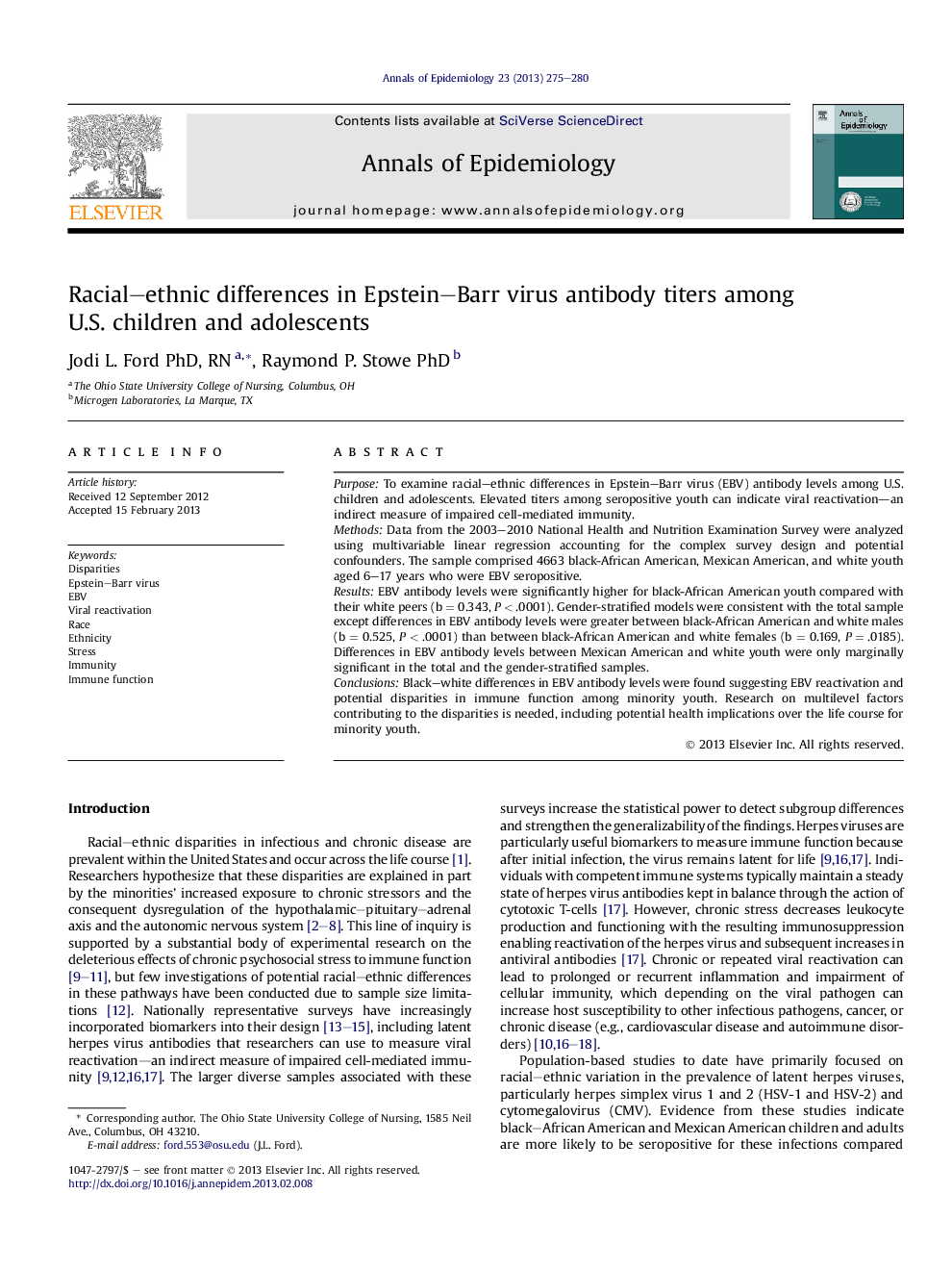| Article ID | Journal | Published Year | Pages | File Type |
|---|---|---|---|---|
| 6148214 | Annals of Epidemiology | 2013 | 6 Pages |
PurposeTo examine racial-ethnic differences in Epstein-Barr virus (EBV) antibody levels among U.S. children and adolescents. Elevated titers among seropositive youth can indicate viral reactivation-an indirect measure of impaired cell-mediated immunity.MethodsData from the 2003-2010 National Health and Nutrition Examination Survey were analyzed using multivariable linear regression accounting for the complex survey design and potential confounders. The sample comprised 4663 black-African American, Mexican American, and white youth aged 6-17 years who were EBV seropositive.ResultsEBV antibody levels were significantly higher for black-African American youth compared with their white peers (b = 0.343, P < .0001). Gender-stratified models were consistent with the total sample except differences in EBV antibody levels were greater between black-African American and white males (b = 0.525, P < .0001) than between black-African American and white females (b = 0.169, P = .0185). Differences in EBV antibody levels between Mexican American and white youth were only marginally significant in the total and the gender-stratified samples.ConclusionsBlack-white differences in EBV antibody levels were found suggesting EBV reactivation and potential disparities in immune function among minority youth. Research on multilevel factors contributing to the disparities is needed, including potential health implications over the life course for minority youth.
